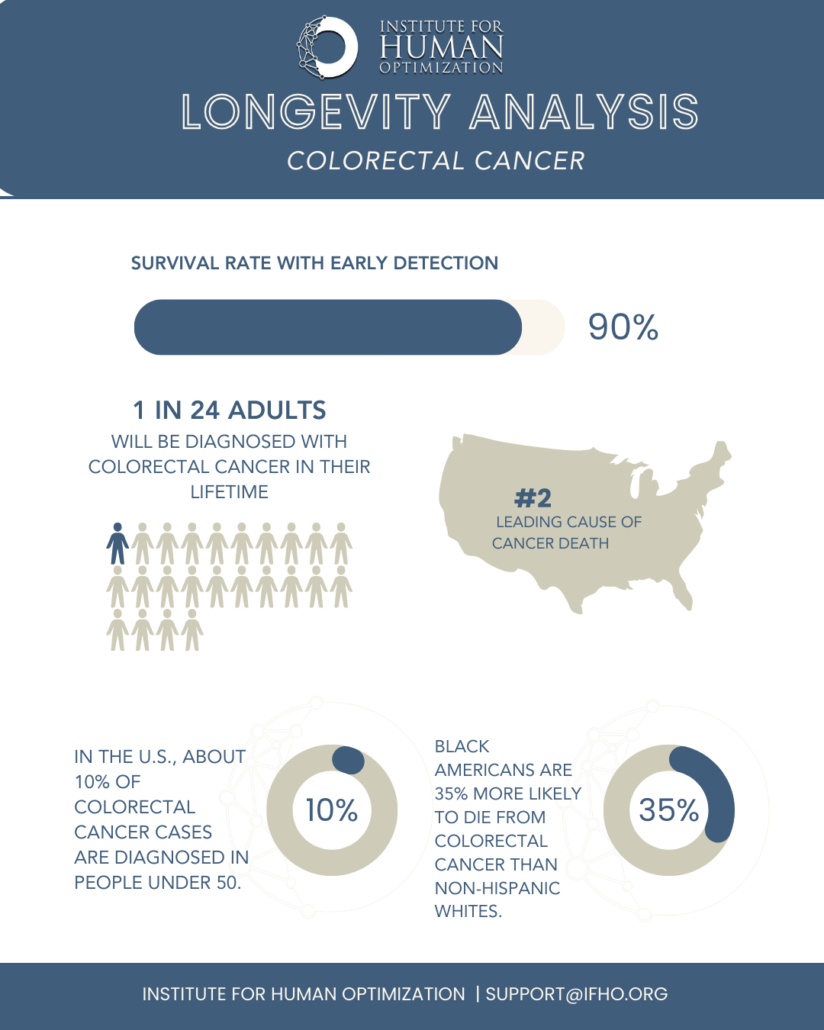In the realm of health and wellness, a recent and concerning phenomenon has been the surge of colon cancer among young adults. Traditionally considered a disease of the older population, colorectal cancer’s metastatic rate has more than doubled in adults under 50 in the past two decades. This shift in demographic challenges long-held medical paradigms and calls for a closer look at how we approach longevity medicine, especially in the context of early detection and prevention.
The Emerging Trend of Early-Onset Colorectal Cancer
Colorectal cancer is a malignancy that arises from the inner lining of the colon or rectum. Signs and symptoms may include blood in the stool, a change in bowel habits, weight loss, and fatigue. In many cases, the disease progresses without early warnings, which underlines the critical importance of regular screenings and vigilant symptom tracking. Recent analyses have illustrated a profound and alarming uptick in colon cancer cases among individuals under 50.
This trend is not only a statistical anomaly to the established cancer epidemiology but poses significant challenges in terms of diagnosis, treatment, survivorship, and even prevention strategies. The etiology of early-onset colon cancer is complex. While genetics certainly play a role, environmental factors and lifestyle choices are increasingly being scrutinized. Diets high in processed foods and low in fiber, sedentary living, and other modern societal constructs are now under the microscope for their potential contributions to this health crisis. This has created an increase in interest in longevity medicine for a proactive approach towards healthcare.
Screening Guidelines in the USA – An Outdated Framework?
The standard age to commence regular colonoscopy screenings in the United States has been 50 for several years. However, as the medical community grapples with these new statistics, some professionals advocate for an earlier start. Combining genetic predisposition with a documented rise in cancer incidence, there is a compelling argument for initiating screenings at an earlier age for certain high-risk groups. Advocacy groups and individual voices within the medical community have been instrumental in steering the conversation toward earlier screenings. Their efforts highlight how outdated guidelines may be contributing to the late diagnosis and relatively poorer prognosis in younger patients, who often do not exhibit the classic symptoms.
Expanding the age range for regular colon cancer screenings undoubtedly raises cost and access concerns. The economic impact and administrative challenges of implementing widespread change to screening protocols are significant hurdles that must be addressed.
A Longevity Medicine Approach – Medicine 3.0
Traditional medicine often focuses on treatment over prevention, and longevity medicine is a relatively new lens through which to view healthcare. Medicine 3.0 involves using technology, data, and new scientific understanding to shift the paradigm toward proactive, personalized healthcare that aims to prolong health span as well as life span.
Precision Medicine
Technological advancements have driven the growth of precision medicine, which tailors treatment and prevention strategies to the individual’s genetic makeup, lifestyle, and environmental influences. When applied to early-onset colon cancer, the precision approach offers a glimmer of hope in identifying at-risk individuals and intervening before the disease progresses.
Integrative Wellness
Preventive interventions now extend beyond the clinical setting to an integrated approach that encompasses diet, exercise, stress management, and other lifestyle factors. These wellness parameters not only mitigate cancer risk but also contribute to overall health and resilience.
Available Testing – Non-Invasive and High-Tech for Longevity
In the pursuit of preventive care, optimal longevity, and early detection, various screening technologies and methodologies are emerging as non-invasive and effective tools.
Genetic Testing
Advances in genetic testing, including at-home DNA kits, provide individuals with insights into their susceptibility to various diseases, including colorectal cancer. Such testing empowers people to take charge of their health and advocate for personalized screening schedules.
AI and Imaging
Artificial intelligence (AI) applications are revolutionizing medical imaging and diagnostics. AI algorithms can interpret colonoscopies and other imaging data with unprecedented speed and accuracy, potentially identifying pre-cancerous lesions long before they become life-threatening.
Liquid Biopsies
The concept of liquid biopsies is particularly exciting in the context of colon cancer. Analyzing blood samples for circulating tumor DNA (ctDNA) or other tumor markers offers a non-invasive method for detecting cancer and monitoring treatment response.

The Call to Action
The rising occurrence of colon cancer in young adults necessitates a multi-faceted response. Clinicians, researchers, regulators, and the public must all play a role in adapting to this new reality. Early detection through modernized screening techniques, individualized prevention strategies, enhanced patient and professional education, and comprehensive data sharing are central components of the fight against this deadly disease.
Proactive Patient Education
Educating the population, especially younger adults, about the signs and symptoms of colon cancer is fundamental. This knowledge empowers individuals to seek medical evaluation when abnormalities arise, potentially leading to earlier diagnosis and treatment.
Research and Funding Prioritization
Investing in research that explores the reasons behind the rise in early-onset colon cancer and developing more effective treatments is critical. Equally important is ensuring adequate funding and resources to support this research.
Policy Changes
Changes to healthcare policies and insurance coverage to support the adoption of innovative screening technologies and personalized treatment regimens can significantly impact outcomes for those at risk for early-onset colon cancer.
About the Institute for Human Optimization
At the Institute for Human Optimization, we believe in the power of personalized medicine to promote optimal health and longevity. Led by Anil Bajnath MD, our science combines cutting-edge technology, advanced testing, longevity medicine, and integrative wellness approaches to provide comprehensive healthcare solutions tailored to each individual’s unique needs. Together, we can optimize human potential and revolutionize the way we approach healthcare. Contact us today to learn more about how we can help you achieve your health optimization goals.

